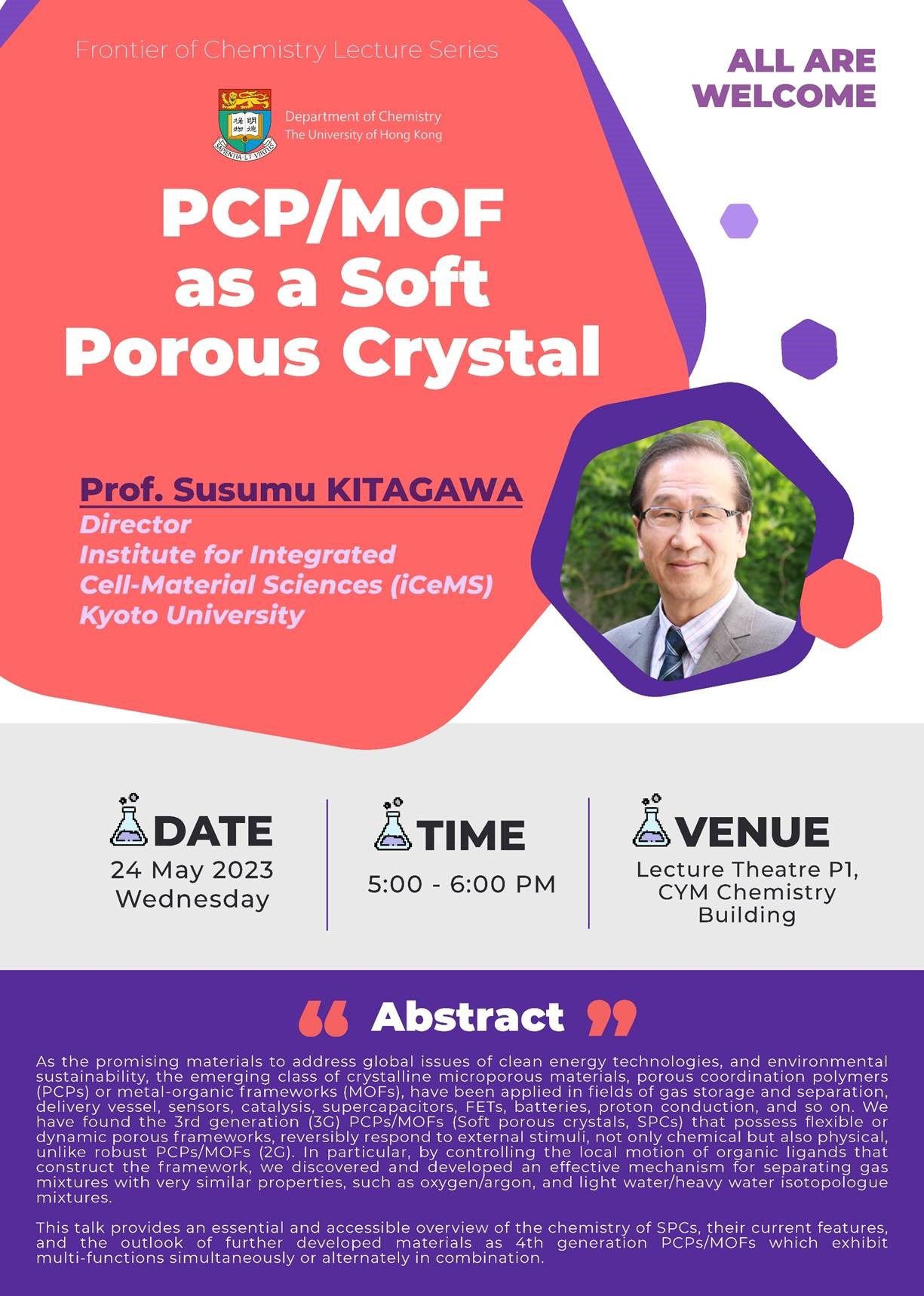| Date | 24 May 2023 |
| Time | 5:00 pm – 6:00 pm (HKT) |
| Venue | Lecture Theatre P1, Chong Yuet Ming Chemistry Building |
| Speaker | Prof. Susumu Kitagawa |
| Institution | Director Institute for Integrated Cell-Material Sciences (iCeMS), Kyoto University |

Title:
PCP / MOF as a Soft Porous Crystal
Schedule:
Date: 24 May 2023 (Wed)
Time: 5:00 pm – 6:00 pm (HKT)
Venue: Lecture Theatre P1, Chong Yuet Ming Chemistry Building
Speaker:
Prof. Susumu Kitagawa
Director
Institute for Integrated Cell-Material Sciences (iCeMS),
Kyoto University
Bio-sketch:
Prof. Susumu Kitagawa received his Ph. D. at Kyoto University and is now a Distinguished Professor of Kyoto University, and Director of the Institute for Integrated Cell-Material Sciences (WPI-iCeMS) at Kyoto University. His main research fields are coordination chemistry, in particular, the chemistry of coordination space, and his current research interests are centered on the synthesis and properties of porous coordination polymers (PCPs) /metal-organic frameworks (MOFs). Prof. Kitagawa was the first to demonstrate “porosity” for coordination networks with gas sorption experiments (1997). He pioneered a new type of MOFs with structural flexibility and coined soft porous crystals for them, which show unique porous properties dissimilar to those of conventional porous materials. To date, MOFs are classified as a new category of porous materials, as opposed to the conventional classifications of inorganic and carbon materials.
Abstract:
As the promising materials to address global issues of clean energy technologies, and environmental sustainability, the emerging class of crystalline microporous materials, porous coordination polymers (PCPs) or metal-organic frameworks (MOFs), have been applied in fields of gas storage and separation, delivery vessel, sensors, catalysis, supercapacitors, FETs, batteries, proton conduction, and so on. We have found the 3rd generation (3G) PCPs/MOFs (Soft porous crystals, SPCs) that possess flexible or dynamic porous frameworks, reversibly respond to external stimuli, not only chemical but also physical, unlike robust PCPs/MOFs (2G). In particular, by controlling the local motion of organic ligands that construct the framework, we discovered and developed an effective mechanism for separating gas mixtures with very similar properties, such as oxygen/argon,and light water/heavy water isotopologue mixtures.
This talk provides an essential and accessible overview of the chemistry of SPCs, their current features, and the outlook of further developed materials as 4th generation PCPs/MOFs which exhibit multi-functions simultaneously or alternately in combination.
- ALL ARE WELCOME -
